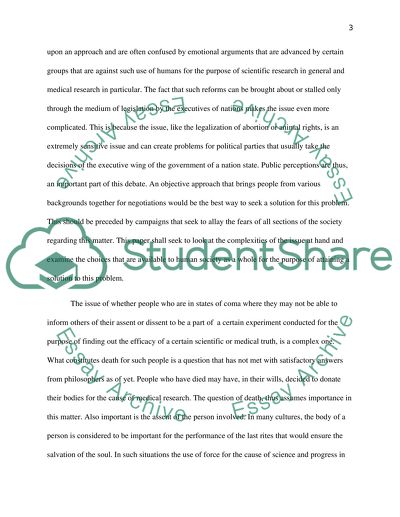Cite this document
(“Medical Experiments on Incompetent Individuals in a Society Essay”, n.d.)
Medical Experiments on Incompetent Individuals in a Society Essay. Retrieved from https://studentshare.org/philosophy/1442854-we-should-make-every-effort-to-conduct-medical
Medical Experiments on Incompetent Individuals in a Society Essay. Retrieved from https://studentshare.org/philosophy/1442854-we-should-make-every-effort-to-conduct-medical
(Medical Experiments on Incompetent Individuals in a Society Essay)
Medical Experiments on Incompetent Individuals in a Society Essay. https://studentshare.org/philosophy/1442854-we-should-make-every-effort-to-conduct-medical.
Medical Experiments on Incompetent Individuals in a Society Essay. https://studentshare.org/philosophy/1442854-we-should-make-every-effort-to-conduct-medical.
“Medical Experiments on Incompetent Individuals in a Society Essay”, n.d. https://studentshare.org/philosophy/1442854-we-should-make-every-effort-to-conduct-medical.


